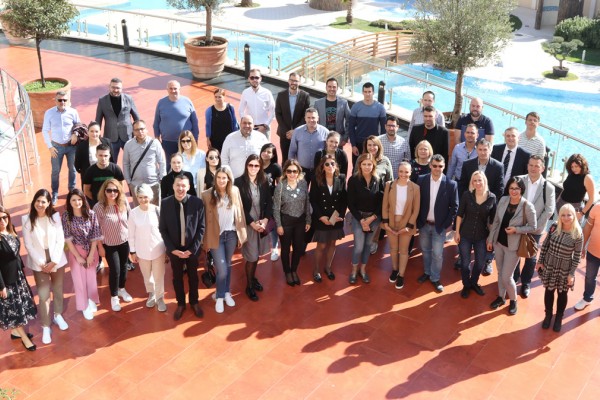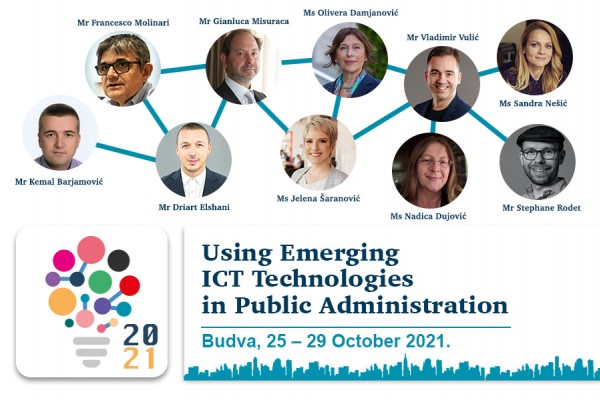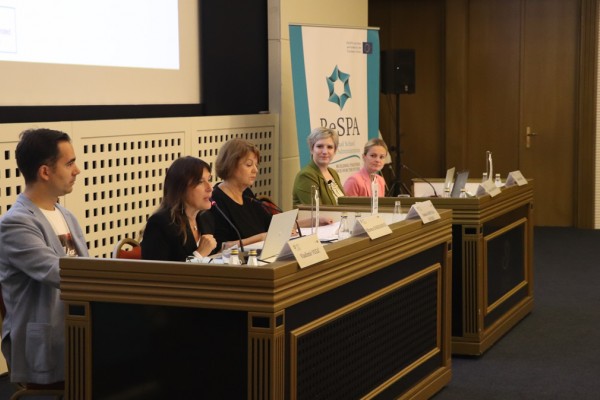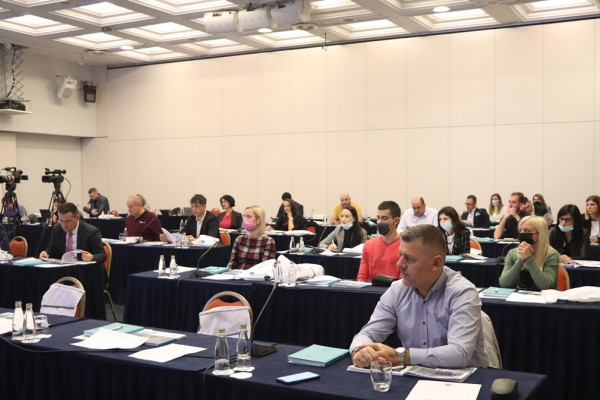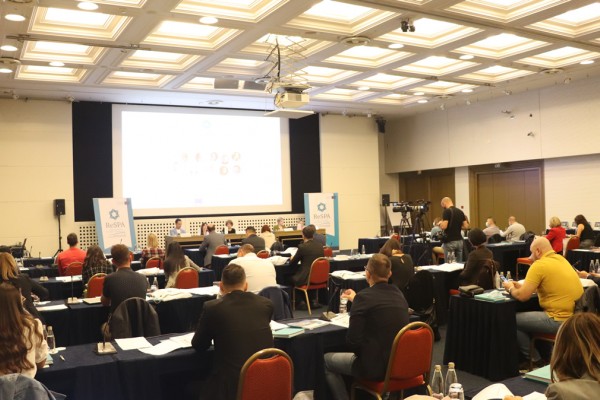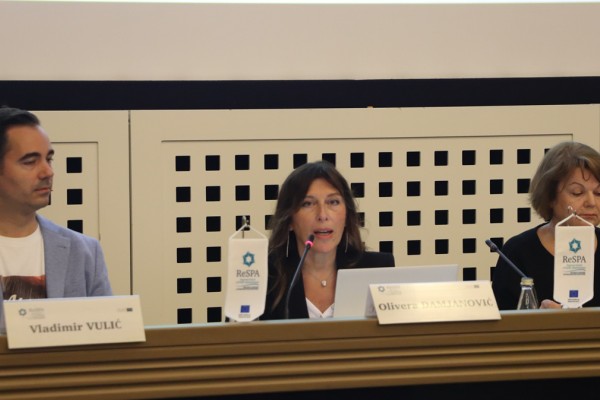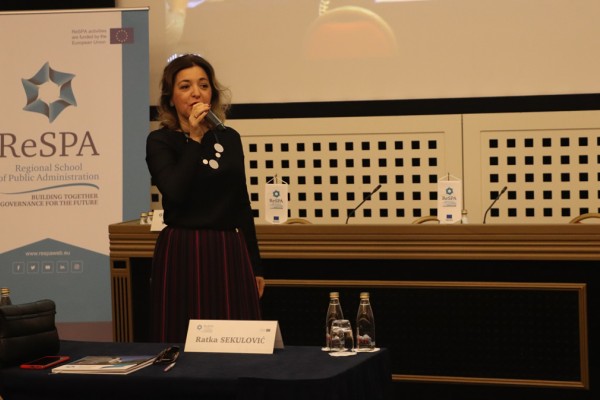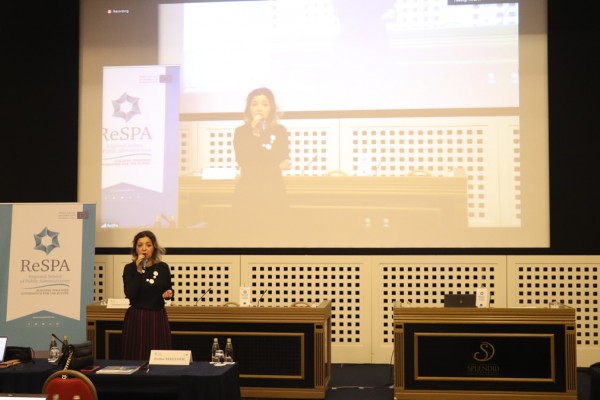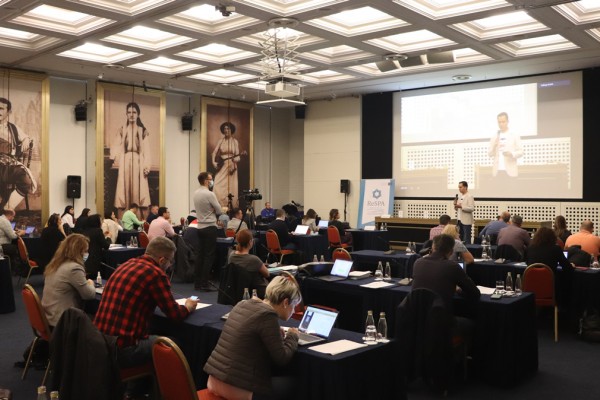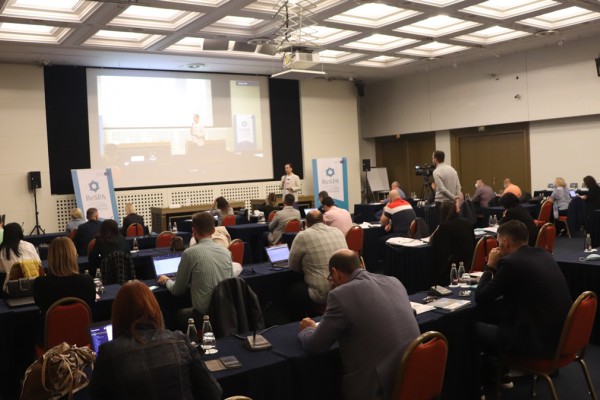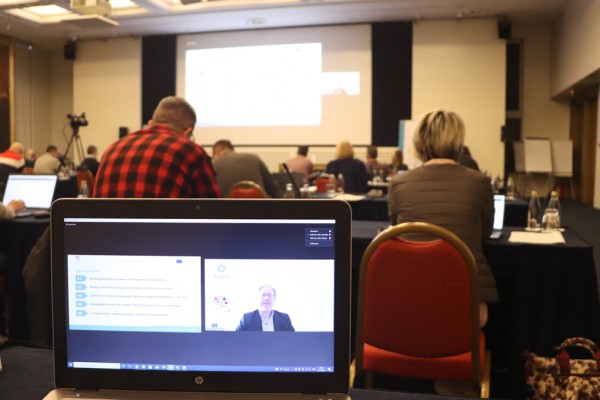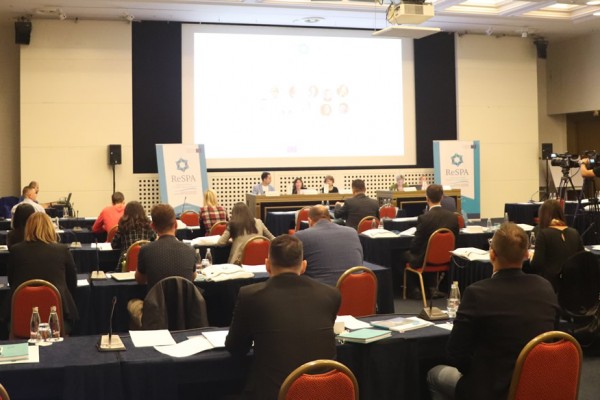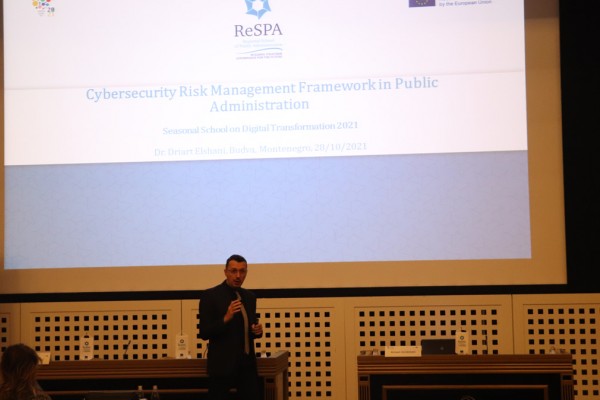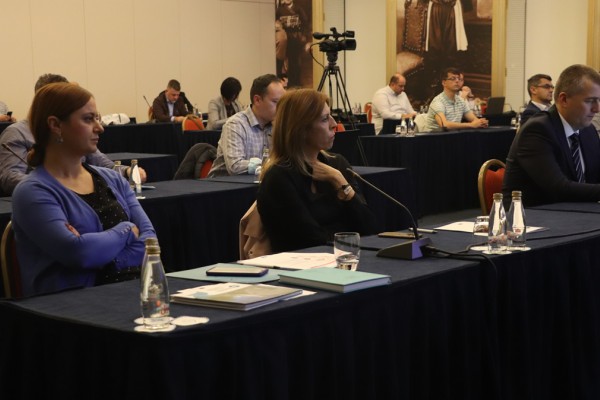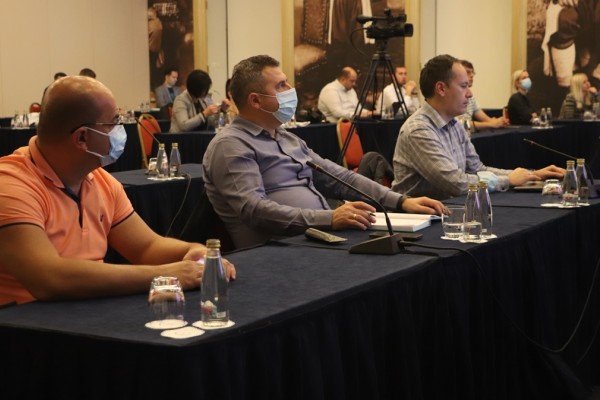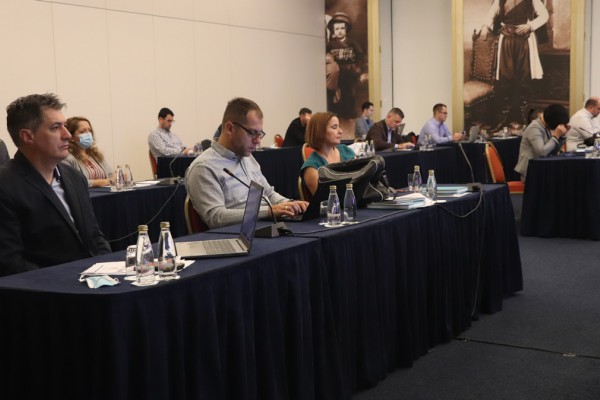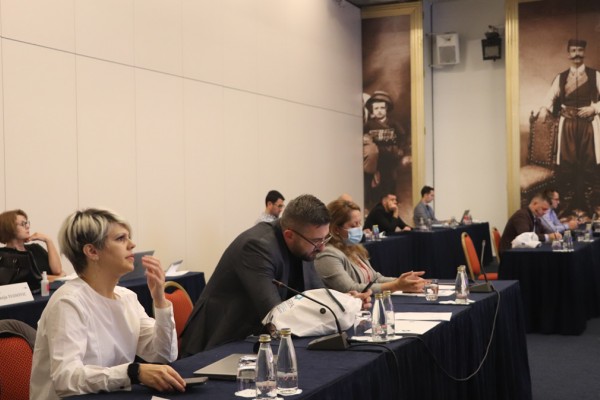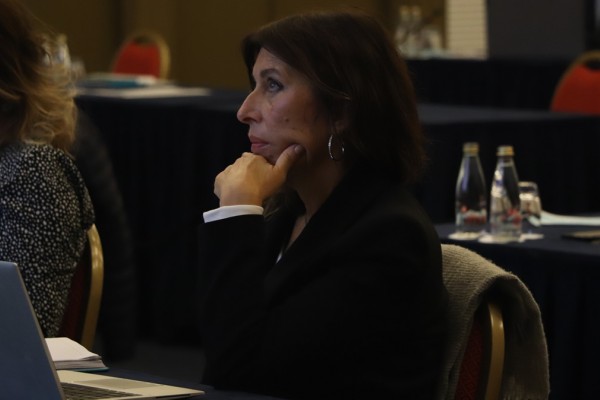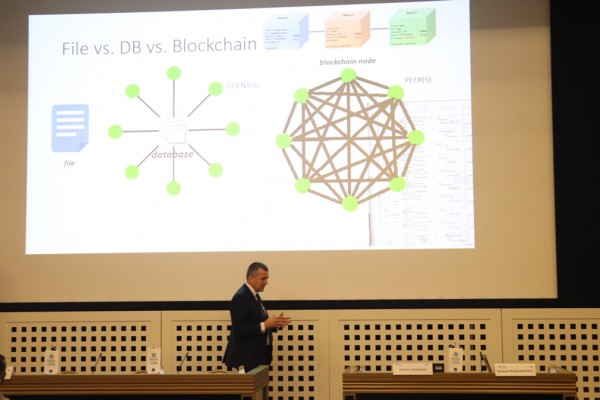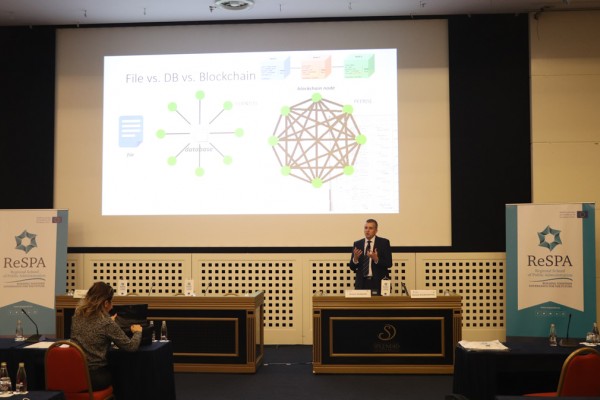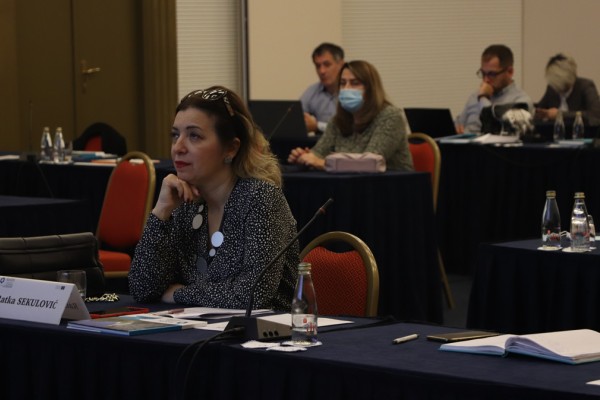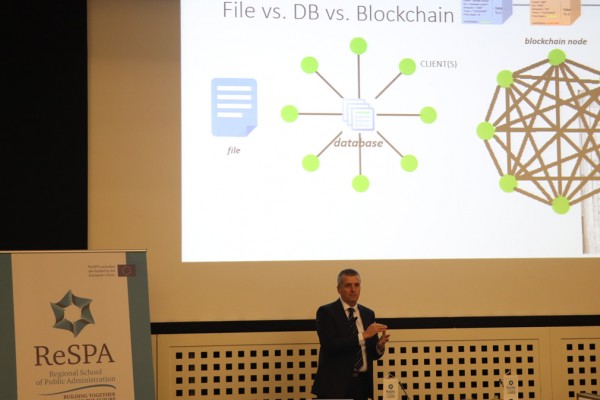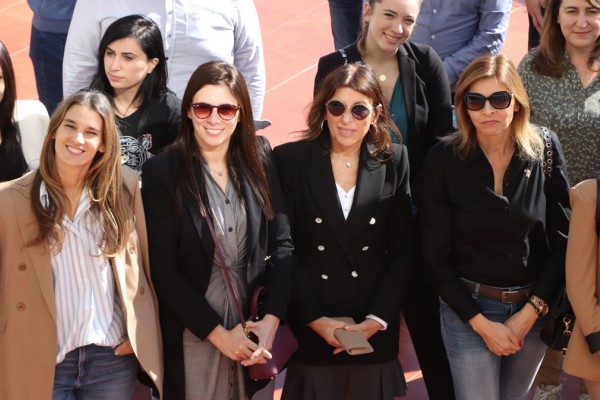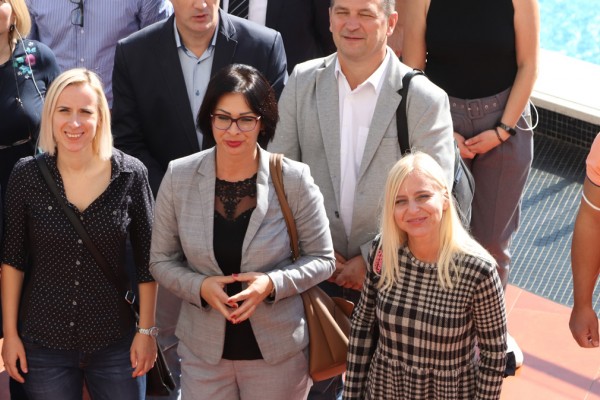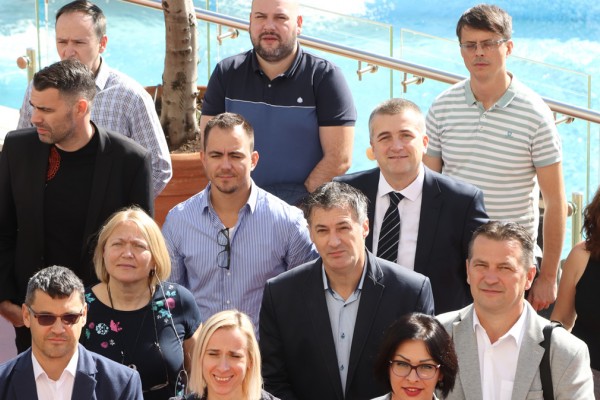
Seasonal School on Digital Transformation - Using Emerging ICT Technologies in Public Administration
This year’s Seasonal School on Digital Transformation has started today.
During the next five days, more than forty participants from e-GOV Working Group, e-GOV civil servants practitioners and HRMD Working Group will gather in Budva in person and virtually to learn and discuss the most relevant aspects of using the emerging ICT technologies in public administration such as Artificial Intelligence (AI), Cloud and Blockchain. The Seasonal School will look into how governments could cope and adjust when using rapidly emerging technologies, taking care especially of user-centric design, Cybersecurity and communications. EU and regional lecturers will be presenting use cases of AI, Cloud and Blockchain in public administrations. They will refer to benefits and advantages alongside the dilemmas and traps of their deployment in public settings. Within these topics, EU policies pertaining to the use of AI will be presented.
In addition, the key systems of Cybersecurity will be presented in the context of using AI for strengthening the protection of data. Communication challenges adherent to digital transformation in the public sector that refers to resistance and fears of users when accepting new digitized public service will be tackled too.
This year Seasonal School aims at providing updated, fresh insights into the use of new ICT technologies in the public sector and, more importantly, into the proper, user-centric creation and delivery of public services supported with the deployment of emerging ICT technologies in public settings, thus looking at the benefits and advantages but also risks and uncertainties their use can bring in.
DAY 1
The first day of Seasonal School has been devoted to Design Thinking Methodology (DTM) in designing public services in public administration, which was presented by two ReSPA Experts.
Ms Sandra Nešić presented the benefits of the human-centered approach: how the implementation of Design Thinking Methodology can create innovative, user-centred public services that as a consequence result in stronger and more resilient human-centered organizations. In the session designated to Benefits of Human-Centred approach, Ms Nešić focused on variety of benefits this approach can assure and also presented differences between traditional and human-centered public administration.
Ms Jelena Šaranović presented Design Thinking Methodology in practice, focusing on using Human-Centered Design to assess user needs and create a better customer experience in the public sector.
DAY 2
During the second day of the Seasonal School, participants were introduced to the new and actual topics mostly connected to Artificial Intelligence (AI).
Mr Gianluca Misuraca, ReSPA Expert, gave an overview of using AI in the public administration within the EU member states and presented the latest events and trends (Programme for Europe, Digital Compass, etc.). Mr Misuraca gave an overview of EU states efforts to adopt AI-enabled innovations in the government operations and EU national strategies in the public sector related to AI, AI policies and regulatory framework.
Mr Francesco Molinari gave an overview of improving the design and delivery of public services with AI by answering how AI-main characteristics can be utilized in public administrations and how public services can improve with AI in pro-active public service delivery models. Mr Molinari also gave an overview of the AI potentials, main areas of AI deployment in public settings and of associated risks, answering why it is essential for public institutions to take care about them.
The last today’s lecturer, Ms Nadica Dujović, presented to the participants the communication challenges with end-users to the introduction of e-Services.
DAY 3
During the third day, throughout four sessions, the attendees were introduced to the Human-Centred Design (HC) for AI, Dilemmas and traps in exploring AI and Data Governance, Illustrative cases of AI use in Public services and Cybersecurity for public administration.
During the first session, Mr Stephane Rodet explained the main facts about Human-Centred Design, answering why HC for AI is its own topic and what makes it special in terms of skills and methods. Moreover, Mr Rodet provided information on identifying potential areas that offer an opportunity for improvement through AI. Finally, he gave an in-depth overview of how HCD can analyze and define an AI opportunity and touchpoints with other topics discussed in this conference, like design-thinking, ethics, and trustworthiness.
Mr Gianluca Misuraca presented dilemmas and traps in exploring AI and data governance by covering ethical issues, access to and-use quality data, human rights issues and other complementary topics.
Mr Francesco Molinari presented illustrative cases of AI use in public services and possible shifts that AI might bring in the future.
The last lecturer, Mr Driat Elshani, talked about Cybersecurity in public administration, cybersecurity risk management and mitigation in public administration by emphasizing cybersecurity strategies in the Western Balkans and regulatory framework.
DAY 4
Today at Seasonal School, issues related to Cybersecurity risk mitigation and usage of the Blockchain in the public administration were tackled.
Mr Driart Elshani, while presenting the Cyber risk mitigation issues in public administration, he had paid special attention to the emerging ICT technologies and the impact they could have on cybersecurity, either by strengthening it or by adding to cybersecurity risks.
Mr Kemal Bajramović presented the possibilities of using the Blockchain in public administration and the development of its use in the EU by focusing on illustrative cases of Blockchain-based public services. At his last session, Mr Bajramović presented the UNDP-led pilot from Sarajevo, "Issuing electronic versions of graduate diplomas using Blockchain".
CLOSING DAY
Seasonal School on Digital Transformation 2021 – Using Emerging ICT Technologies in Public Administration is over!
More than 50 public servants from Western Balkans countries, researchers from the EU and the region, entrepreneurs and technologists discussed, learned and shared viewpoints on the intriguing side of new ICT technologies in the public domain and their transformative power directed to the well-being of end-users and ecosystems.
ReSPA Experts dived more deeply into topics related to emerging ICT technologies such as Artificial Intelligence, Cloud Computing and Blockchain as well as approach in designing like Design Thinking Methodology/Human Centred Design to provide information on how digital technologies can be used as a driver for innovation in public settings and what could be the benefits, challenges, and associated risks of using them in PA.
During the last day of the Seasonal School, Mr Bajramović presented Cloud Computing Models for public administration, focusing on the challenges and benefits of moving to Cloud and its models of use as well as developments in the EU, while Ms Dujović presented the examples of ICT Glossaries and the feedbeck of participants on facing fears and resistances of users towards using ICT Technologies and e-services.
Statements from Participants
Statements from ReSPA Experts












